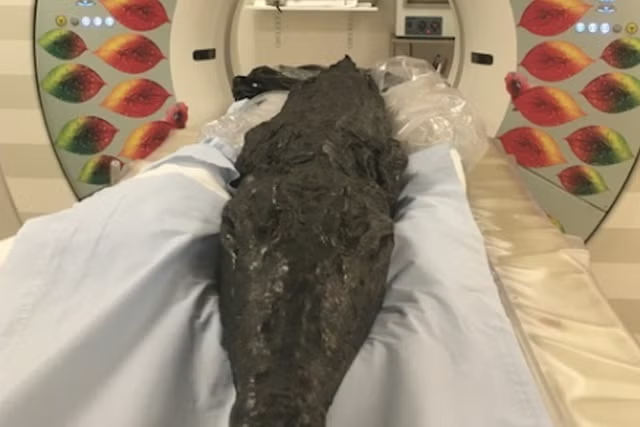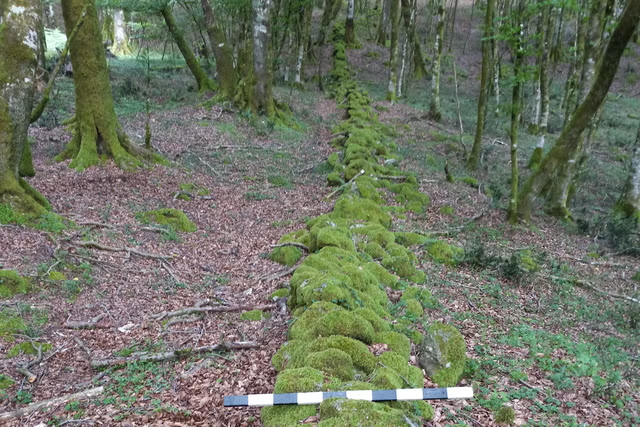Scientists have figured out why magic mushrooms make you have weird and wacky hallucinations.
Psilocybin, one of the psychoactive ingredients in magic mushrooms, impacts a region of the brain associated with daydreaming, remembering and other introspective thinking, according to a new paper in the journal Nature.
The effects it has on the brain may last for weeks, the paper reveals. The discovery helps to explain why the drug causes such strange psychedelic experiences, and it may pave the way for psilocybin to be used to help with mental health conditions.
"Siegel (the study author) et al. provide compelling evidence that desynchronized brain activity underlies the acute psychedelic state and might contribute to persistent changes in neural activity in brain regions that are responsible for controlling a person's sense of self, emotions and life-narrative," Petros Petridis, a psychedelics researcher at NYU Langone Center for Psychedelic Medicine, said in an accompanying News & Views article also published in Nature.
"This has significant clinical implications because it suggests that psilocybin could make the brain more malleable, which could be beneficial for people who suffer from rigid maladaptive patterns of thought and behaviour."
There are several species of magic mushrooms, all of which contain the active compounds psilocybin and psilocin, which can alter perception, mood and thought processes. The effects of magic mushrooms can vary widely based on the species, the amount consumed and the individual's mental state and environment, but common effects include visual and auditory hallucinations, an altered perception of time and space, euphoria and increased introspection. The effects typically begin 30 to 60 minutes after consuming the mushrooms, and can last between four to six hours.
Recent years have seen a spike in research into the potential therapeutic uses of psilocybin, with several studies showing promise in using psilocybin-assisted therapy for conditions such as depression, anxiety, PTSD and even substance abuse.
"These days, we know a lot about the psychological effects and the molecular/cellular effects of psilocybin," study author Joshua S. Siegel, a psychiatry researcher at Washington University School of Medicine in St. Louis, said in a statement. "But we don't know much about what happens at the level that connects the two — the level of functional brain networks."
According to the new paper, the researchers tracked changes in the brains of seven adults aged between 18 and 45 using MRI scans before, during, and three weeks after taking psilocybin. The researchers discovered that the drug desynchronized various areas of the brain, changing connectivity between these regions.
"The idea is that you're taking this system that's fundamental to the brain's ability to think about the self in relation to the world, and you're totally desynchronizing it temporarily," Siegel said. "In the short term, this creates a psychedelic experience. The longer-term consequence is that it makes the brain more flexible and potentially more able to come into a healthier state."
Some small effects of the drug were seen to persist for weeks after taking it, which the scientists say makes it ideal for therapeutic use.
"There's a massive effect initially, and when it's gone, a pinpoint effect remains," co-author Nico U. F. Dosenbach, professor of neurology at at Washington University, said in the statement. "That's exactly what you'd want to see for a potential medicine. You wouldn't want people's brain networks to be obliterated for days, but you also wouldn't want everything to snap back to the way it was immediately. You want an effect that lasts long enough to make a difference."
Interestingly, the researchers found that while each person's brain signals were unique to them and easily distinguished from one another while sober, after taking psilocybin, their brain networks appeared very similar and could not be identified until they finished their trip.
"The brains of people on psilocybin look more similar to each other than to their untripping selves," Dosenbach said. "Their individuality is temporarily wiped out. This verifies, at a neuroscientific level, what people say about losing their sense of self during a trip."
By asking the participants to rate their feelings during the trip using something called the Mystical Experience Questionnaire, the researchers could compare their experiences to their brain signals.
"We were able to get very precise data on the effects of the drug in each individual," Ginger E. Nicol, an associate professor of psychiatry at Washington University, said in the statement. "This is a step toward precision clinical trials. In psychiatry, we often don't know who should get a particular medicine and how much or how often. As a result, we end up prescribing one medicine after another, tinkering with the dosage, until we find something that works. By using this approach in clinical trials, we can identify the factors that determine who benefits and who doesn't, and make better use of the medicines we have."
However, the researchers note that this research is in its earliest stages, and people should not use their findings as a reason to self-medicate for any mental health conditions with psilocybin.
"Verification of the proposed antidepressant mechanism of psilocybin will require precision patient studies. New methods to measure neurotrophic markers in the human brain will provide a critical link between mechanistic observations at the cellular, brain networks and psychological levels," they wrote in the paper.
Do you have a tip on a science story that Newsweek should be covering? Do you have a question about magic mushrooms? Let us know via science@newsweek.com.
Disclaimer: The copyright of this article belongs to the original author. Reposting this article is solely for the purpose of information dissemination and does not constitute any investment advice. If there is any infringement, please contact us immediately. We will make corrections or deletions as necessary. Thank you.



